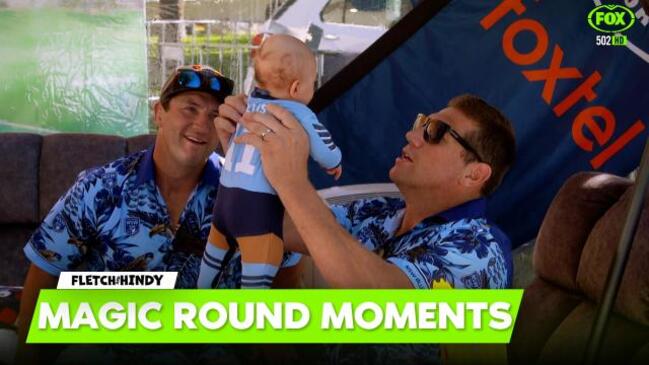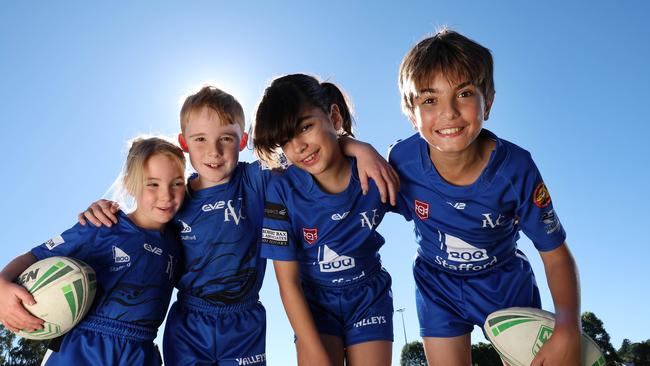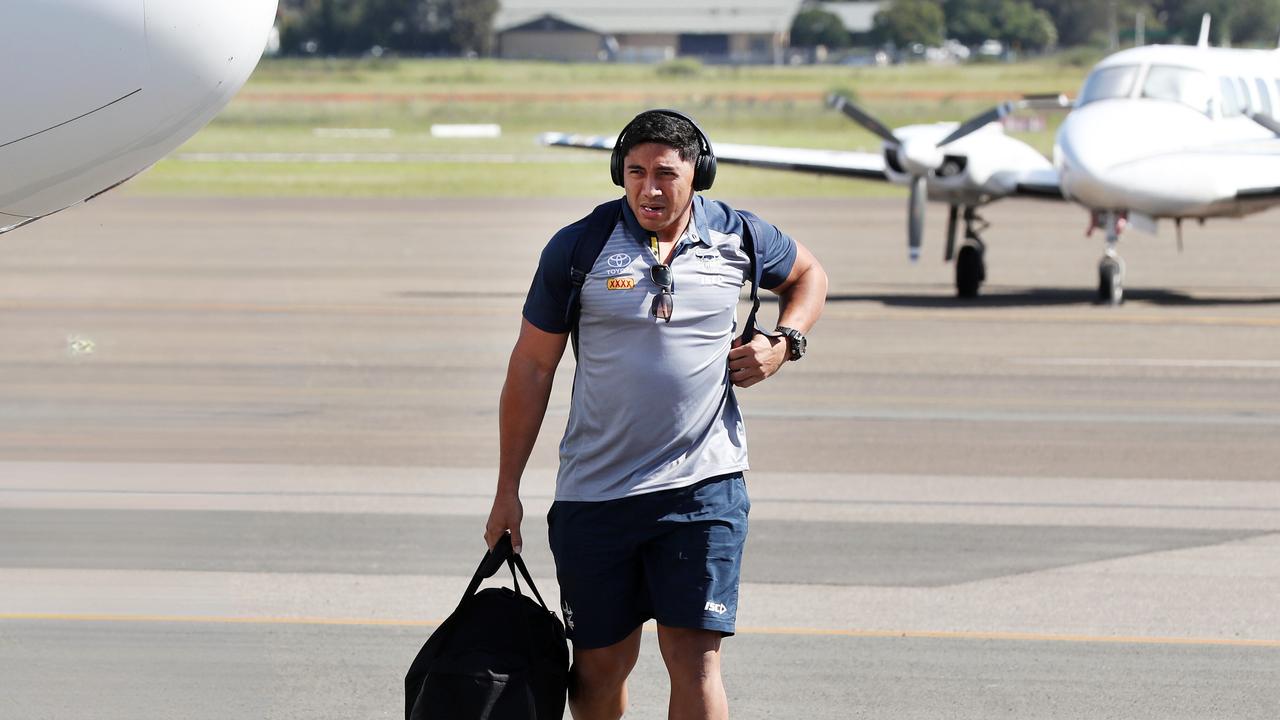Junior rugby league participation numbers surge despite outcry over controversial rule changes
The howls of protests about controversial rule changes at junior footy threatened to split the game, but the latest participation numbers have silenced even the noisiest critics.

Rugby league participation numbers are flying. As the cut-off date for registrations fast approaches, the game is soaring towards record levels.
There is every chance rugby league could burst through the 200,000 barrier in coming weeks as parents and kids embrace the controversial rule changes that threatened to split the game asunder earlier in the year.
This masthead documented the outcry at junior clubs in NSW over plans to place a ban on tackling in under-6s and eliminate finals in age groups up until under-13s.
The changes, which were already in place in Queensland, were greeted with uproar in some quarters but they haven’t stemmed the flow of players – both male and female – into the game.
Instead, the numbers suggest the changes have had the desired effect. Rugby league is just as attractive – if not more so – than ever.

NUMBERS UP ACROSS THE BOARD
The number of women playing the game continues to grow – female players are up a whopping 16 per cent on last year. Just as pleasing for the NRL is the rise in men’s numbers, which are up more than four per cent.
Total registered players are up more than six per cent for the year. NRL chief executive Andrew Abdo looked like the cat who swallowed the canary as he sat down in his office at Rugby League Central to discuss the junior revolution.
Also seated at the table was John Wilson, the NRL’s general manager of participation and growth, and Sydney Roosters legend Brad Fittler, who has joined the NRL as a participation ambassador.
“This story actually starts six years ago,” Abdo said.
“Six years ago the ARL Commission identified the fact that we needed to focus on remaining contemporary to get kids, and families, and people involved in the sport.
“Extensive research went into what is now known as the Player Development Framework, It is really like a philosophy and then a set or practical implementation tools to remove effectively barriers that were creeping in and stopping kids and parents for making decision to play rugby league.

“At the big picture level it was getting too competitive and focus wasn’t on having fun and developing skills. Some of the outcomes of that is maybe parents taking a step back from the intensity of age group competitions.”
The heartland has been as strong as anywhere among the juniors. Penrith, the Gold Coast, Canberra and Brisbane have surged in registered players.
So too has Victoria, where the Melbourne Storm have made a concerted effort to develop their pathways. Junior numbers in Victoria have risen by a remarkable 20 per cent.
Abdo says it isn’t about tooting their own horn, but insists it is important that they sell a feel-good story for the game given many suggested the changes were doomed to fail.
“It is not about gloating about success,” Abdo said.
“You are still learning how to win and lose. These matches are still highly competitive. But we’re removing the focus on finals and grand finals.
“The difference now is we are not having coaches go and recruit kids from four or five suburbs away to build super teams and smash everyone.”
FITTLER: ‘I HAD PLENTY OF THE NEGATIVE EXPERIENCES’
Fittler is as well placed as anyone to talk about the changes and their impact. He was one of the greatest players of his generation and more recently has been involved with the NSW Rugby League, coaching the Blues and promoting the game throughout the state.
He also has a son coming through the system.
“I saw a lot of the environment coming through so I had plenty of the negative experiences,” Fittler said.
“I had some bad experiences junior football because of competitiveness from parents, other kids. I had some great moments winning a couple of grand finals but I also had some awful ones where the competitiveness of teams and parents came through.

“I was probably one of the better players so it is looking through different glasses than most kids. I see the environment at the moment and how it needs to engage with kids to play the game, enjoy the game, see if you like it.
“It tests you out, it is tough. You still get the same vibe just without the pressure.”
Of the experiences as a father of a young rugby league player, Fittler said: “He has heard some awful things. It is trying to work out a way to educate people and better support.
“It is hard changing the psychology around junior football. You have had people there for 30 or 40 years who think this is the way it works.
“It is hard to change people who are set in their ways. They have volunteered their whole life – so what we don’t want to do is say what you are thinking is wrong.
“It is hard.”
GETTING EVERYONE ON BOARD
MacArthur was among the biggest junior nurseries to reject the proposed changes when they were put forward by the NRL. St George and Parramatta were also slow to commit.
All have now fallen into line and Fittler – who visited Macarthur earlier this year, where numbers have subsequently risen 15 per cent – insists they are content.
“It’s rugby league – is anyone ever happy,” Fittler joked.
“No, they are good. I went out there (to Macarthur) and they are good.”
Souths Juniors also harboured concerns.
“We had a long journey with Souths Juniors,” Abdo said.
“There was a lot of resistance. Souths Juniors is a big area, lots of clubs, really important for the development of the game. To their credit, we spoke directly to their board, we took them through the data … and they were with us. When they came on board that set the tone and give us some momentum.”
The journey is far from over. The initial signs are promising but as Abdo concedes, if you don’t continue to evolve and change, you get left behind.
“The proof is in the pudding,” Abdo said.
“We have seen it in Queensland and now we are seeing it in NSW. This year we will break our participation record. We have more people playing and that is a good thing.”





